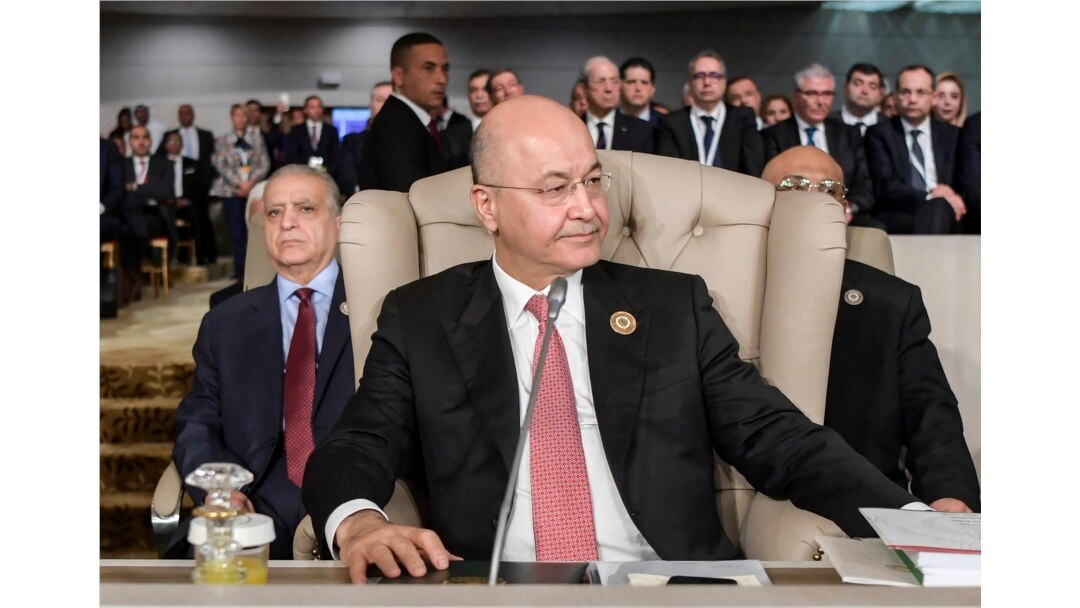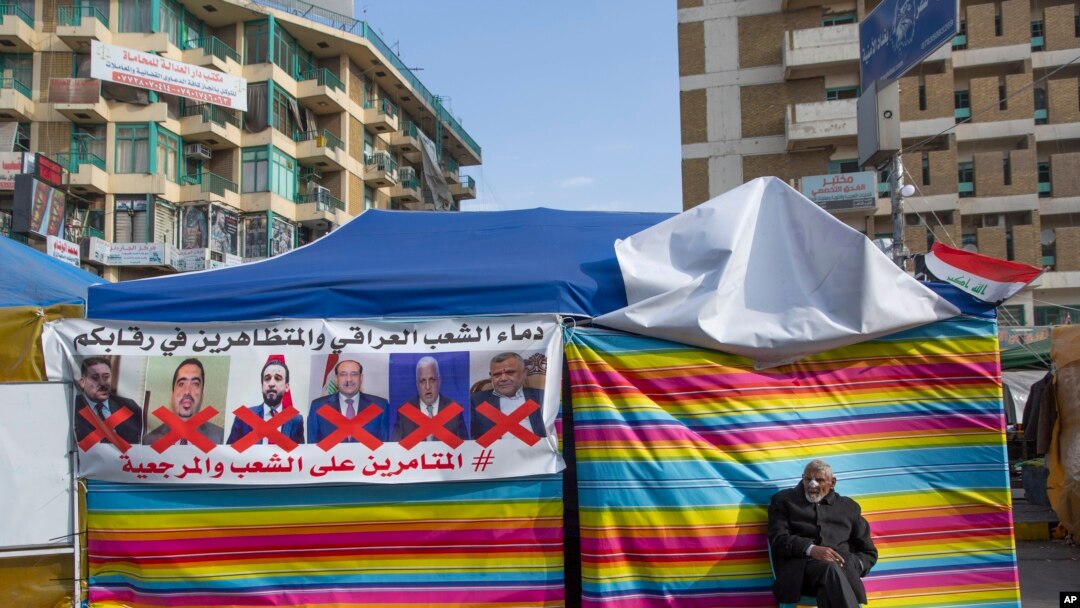Iraqi President Barham Saleh said Thursday he would rather resign than appoint a prime minister chosen by a bloc in parliament that is influenced by Iran.
On Wednesday, the Fatah bloc named Asaad al-Eidani, governor of the southern Basra province, as the country's next prime minister. The choice was quickly rejected by anti-government protesters, who have called for a complete overhaul of the government that has been in place since the 2003 U.S. invasion of Iraq.
"Out of my desire to stop blood and maintain peace, and with due respect to Asaad al-Eidani, I refuse to nominate him," Saleh said in a statement.

FILE - Iraq's President Barham Saleh attends the opening of the 30th Arab Summit in Tunis, Tunisia, March 31, 2019.
"Therefore I put my willingness to resign the post of president to members of parliament so that they decide as representatives of the people what they see fit," the statement added.
Saleh stopped short of actually submitting his resignation.
Anti-government rallies have rocked the capital, Baghdad, and the Shi'ite-majority south since October, with people protesting corruption, poor public services and a lack of jobs. Protests, which had been in somewhat of a lull, were renewed after Adel Abdul Mahdi resigned as prime minister last month.
Mahdi's resignation failed to satisfy anti-government protesters who have said it is not enough for a new prime minister to take over. They are demanding changes to the entire political system imposed after the U.S. invasion in 2003, which they say is corrupt, inept and does little to help impoverished Iraqis despite the nation’s oil wealth.
President Saleh and parliament have missed several deadlines to appoint a new prime minister following Mahdi's resignation. Mahdi and his government agreed to stay on in a caretaker role until a new prime minister is approved.
Parliament voted this week to approve an electoral reform law, which would determine winners by a simple majority within electoral districts, in line with protesters' demands. But many in the opposition say there is still a long way to go.
At least 460 people have died and tens of thousands of others have been wounded since demonstrations erupted in October in Baghdad and Shi'ite-majority areas in southern Iraq.


